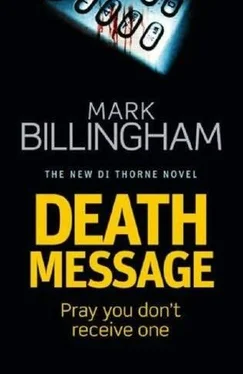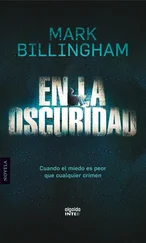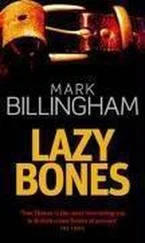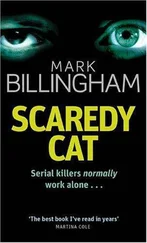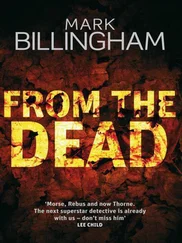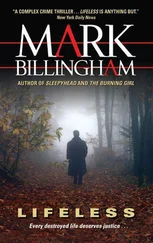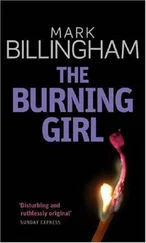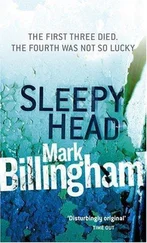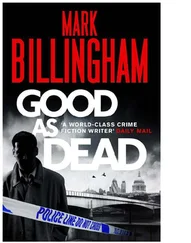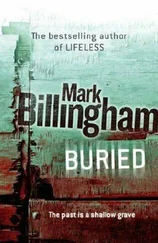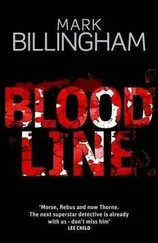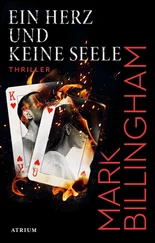Thorne clicked on REPLY. Typed in: I’m here.
Sent the message, and waited.
Thorne knew that, as far as public perception went, it was all horribly simple. Certainly, for the victims of crime, and for the relatives of the dead, it was cut and dried. If police caught a killer they’d done a good job. If they didn’t, they’d fucked up. But few understood or appreciated the importance of luck.
Good and bad. Blind…
The bad luck you lived with, but the good you grabbed with both hands and tried to hold on to. It had played a major part in putting Sutcliffe away, and Shipman. And when beaming chief constables stood before the cameras and talked about a ‘job well done’, there was every chance they were inwardly thanking God, or whatever came closest, for a healthy portion of good fortune. Were praying for more of the same next time.
Following the discovery of Skinner’s body, the press office had released a story for inclusion in the late edition of Monday’s Standard . It had been deliberately low key: no mad, staring eyes or lurid ‘Cop-killer Sought’ headlines. Just a couple of columns on an inside page: a picture of Marcus Brooks; a few lines explaining that this man, whom police were looking for in connection with an ‘ongoing inquiry’, may well have changed his appearance since the photograph had been taken; the assertion, italicised , that he was considered to be dangerous and must not be approached.
The calls had trickled in over the next two days: names; sightings; at least two people claiming that they were Marcus Brooks. All reports were followed up, with particular attention paid to any sightings in the west London area, and overnight a call had come in that looked very much like a solid lead.
Something to be grabbed with both hands.
The caller worked as a night-shift security guard at the London Ark – the spectacular copper and glass office complex in the centre of Hammersmith. He’d reported that on two separate occasions, coming home from work at just before 6 a.m., he’d seen an individual who might have been the man he’d read about in the Standard article. The man had been going into a house opposite his own. They had even nodded to one another the second time their paths had crossed.
The security guard lived three streets away from one of the confirmed cell-sites.
The house he identified was divided into three flats, and while it was being watched, front and back, the landlord was traced and questioned at his home by Andy Stone and another officer. It quickly emerged that the man who may have been Marcus Brooks was the tenant of the one-bedroom flat on the top floor. He had moved into the flat two weeks before, giving the name Robert Georgiou, and had paid three months’ rent in advance, in cash. When questioned, the landlord told Stone that, yes, thinking about it, he had thought his new tenant was a little odd. ‘Quiet, you know? Intense.’ But the man had said something about being separated from his wife, so the landlord had put it down to that and left him alone.
‘We all need privacy sometimes,’ he had said to Stone.
Not to mention cash, Thorne had thought, when Stone had reported back to him.
They’d set up an observation post in a house opposite at 7 a.m., and watched the flat for four hours. An armed unit had been put on standby near by. Adjacent houses had been evacuated as quickly and discreetly as possible.
With no sign of movement, and reliable intelligence that the man had been seen entering the building just before 6 a.m., the assumption that the target was inside, and probably asleep, became official just before midday.
Brigstocke conferred with his commander, then gave the order to go in.
Kitson leaned a little closer to the twin-CD recorder that was built into the wall of the interview room. There was no need, as the microphones were highly sensitive, but it was an automatic movement; like ducking beneath the blades of a helicopter.
‘Miss Kemal has once again declined the offer of legal representation.’
The young woman sitting in the chair opposite frowned and tugged at her hair. ‘I don’t need anyone, do I? I’m not in any trouble.’ Her voice was soft, with no more than a hint of a London accent.
‘I don’t think so,’ Kitson said.
‘So…’ She shrugged.
‘It’s just procedure, Harika. Not a problem.’
The girl was in her early twenties, an accountancy student at North London University. Kitson could see how attractive she was; could see it in Stone’s reaction when they’d collected her from the foyer of Colindale station. He had not seen her before; had not been present when Harika Kemal had initially been questioned, on the night Deniz Sedat had been stabbed to death. She had not been at her best then, anyway.
She had green eyes with absurdly long lashes, and brown hair streaked with honey-coloured highlights. Kitson guessed these were probably not the features Stone had noticed first.
‘We need to know why you called,’ Kitson said.
The girl said nothing.
‘ Twice,’ Stone said.
‘Look, we know you’re scared.’ As she spoke, Kitson realised that she was using the same tone she used with her kids when they didn’t want to go to the dentist or revise for an exam. ‘I could hear it in your voice, and I swear we’ll do everything we can to make sure you have nothing to be scared about.’
‘I didn’t call anybody.’
‘Harika, you said you knew who had killed Deniz. We have recordings of those phone calls.’
‘Not from me.’
‘I recognised your voice.’
‘You’ve made a mistake.’
‘We can trace the call,’ Stone said.
Kitson could see the dilemma in the girl’s eyes. Could see she wanted to tell Stone that he was talking rubbish, but was unable to. She had withheld her number on both occasions but dare not admit it. Instead, she dropped her gaze to the tabletop; picked at its edge with a plum-coloured fingernail.
‘We can, if we need to,’ Kitson said. ‘It’s a pain in the arse when a number’s been withheld, and obviously we’d like you to save us the trouble, but we can do it.’
Stone turned on the charm, such as it was. ‘Come on, help us out, Harika. If you know something, if you know who was responsible for killing Deniz, don’t you owe it to him to tell us?’
‘It’s a big deal, I know,’ Kitson said. ‘But there’s no need to be scared. We’ll take care of everything.’
When she finally looked up, the girl’s eyes were wide and wet. ‘I thought I knew something, but I didn’t.’ She managed to produce a wobbly smile. ‘That’s all. Stupid…’
‘Fine, but why don’t you let us check it out?’ Kitson said. ‘If you’re wrong, there’s no harm done, is there?’
Harika shook her head: twisted fingers into her hair.
‘There are two types of people who make these kinds of calls,’ Stone said, suddenly harder. ‘Some people really want to help. They tell us what they know, and if we follow it up and it comes to nothing, it doesn’t matter, because that’s part of the job.’ The girl shook her head, held up a hand. ‘But then there’s always a few who like to mess us about. Who send us in the wrong direction, or make out they know stuff when they don’t, and when you’re trying to catch a murderer that can cost lives. So, I really hope you’re not wasting our time.’
Stone’s aggression did nothing but bring out something similar in the girl. She blinked away the tears and stared back at him. ‘Well, why don’t we all stop wasting time, then? I’m under no obligation to stay here, am I?’
She pushed back her chair, but Kitson leaned across and took hold of her arm. ‘It was easier on the end of a phone,’ she said. ‘I can understand that, the anonymity. But this is every bit as confidential, Harika, really . If you know, even if you think you know, just tell us.’ Kitson looked hard, trying to reach whatever it was that had prompted the young woman to pick up the phone in the first place. ‘Just give us a name…’
Читать дальше
